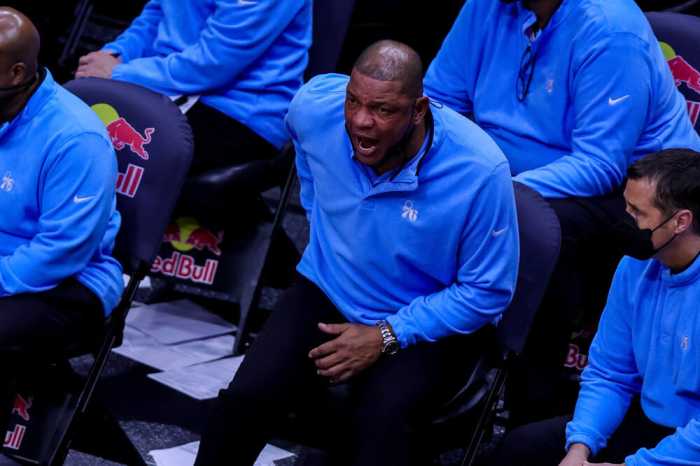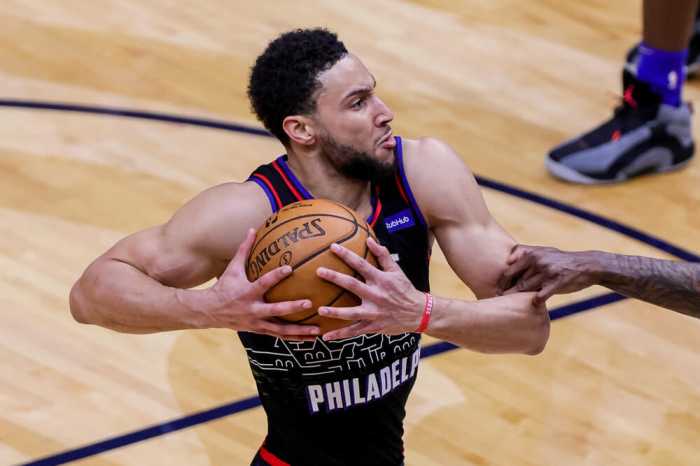Less than a week after Matisse Thybulle earned All-Defense Second-Team honors, the Philadelphia 76ers have another accomplishment to celebrate. After a stellar campaign and nearly being named the league’s MVP, Joel Embiid has been named to the 2021-22 All-NBA Second-Team.
It was quite the special year for the Sixers star as he led the league in scoring averaging 30.6 points per game. Joel Embiid became the first center in the NBA to lead the league in scoring in over 20 years. it had been nearly 20 years since this feat. Shaquille O’Neal was the last center to do so and that was all the way back during the 1999-2000 season.
Embiid’s scoring is also notable as he became the first center in the NBA to average 30 points over the course of a season since legendary Sixer Moses Malone did so back during the 1981-82 season. To put that into perspective, that was 40 years ago.
Along with his scoring, Joel Embiid provided 11.7 rebounds per game, 4.2 assists, 1.1 steals and 1.7 blocks. Embiid boasted a net rating of 11.5 for the 76ers, proving just how important he was the this team on both ends of the court.
The obvious disappointment comes as Joel Embiid was named to the second-team while many would argue — and have a legitimate point — that he deserved first-team honors. One argument for this is that Joel Embiid finished second — another controversial subject — in the league’s MVP voting to Nikola Jokic. How can the consensus second-best player have five players on a team above him? It’s a great question and the answer is because of old fashioned methodology.
While the NBA All-Star game has evolved to a two guard, three front court team, the All-NBA voting as inexplicably followed suit. It’s such an easy solution to a clear and obvious problem it’s rather surprising that the league hasn’t done the right thing yet. There’s still time but it would be wise for the league to make this — again, obvious — change sooner rather than later as it can lead to players losing out on contract incentives, and that won’t go over well come time to renegotiate the next collective bargaining agreement — which could be as early as the 2023.




























